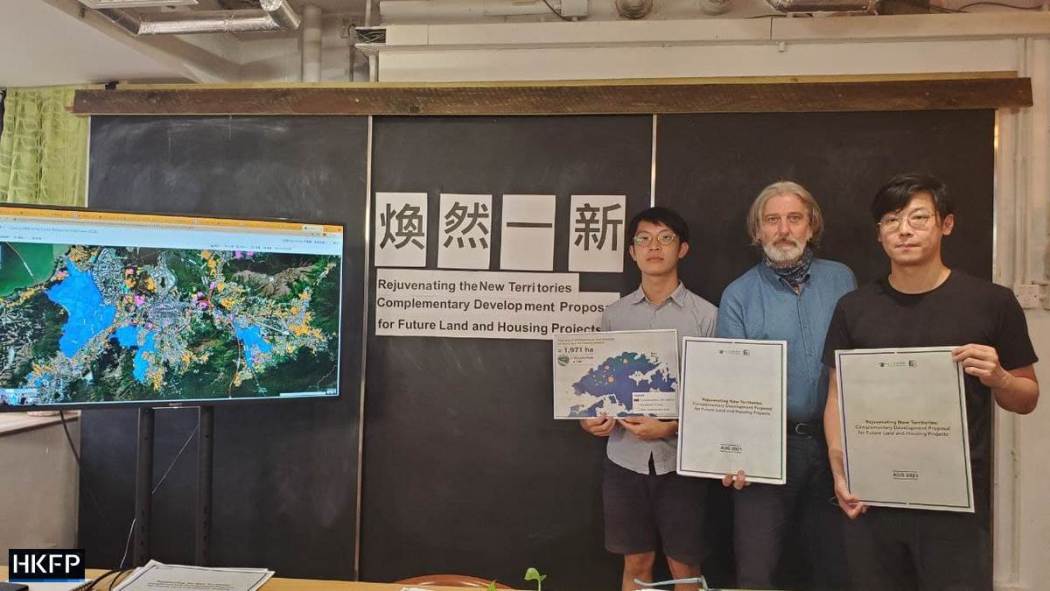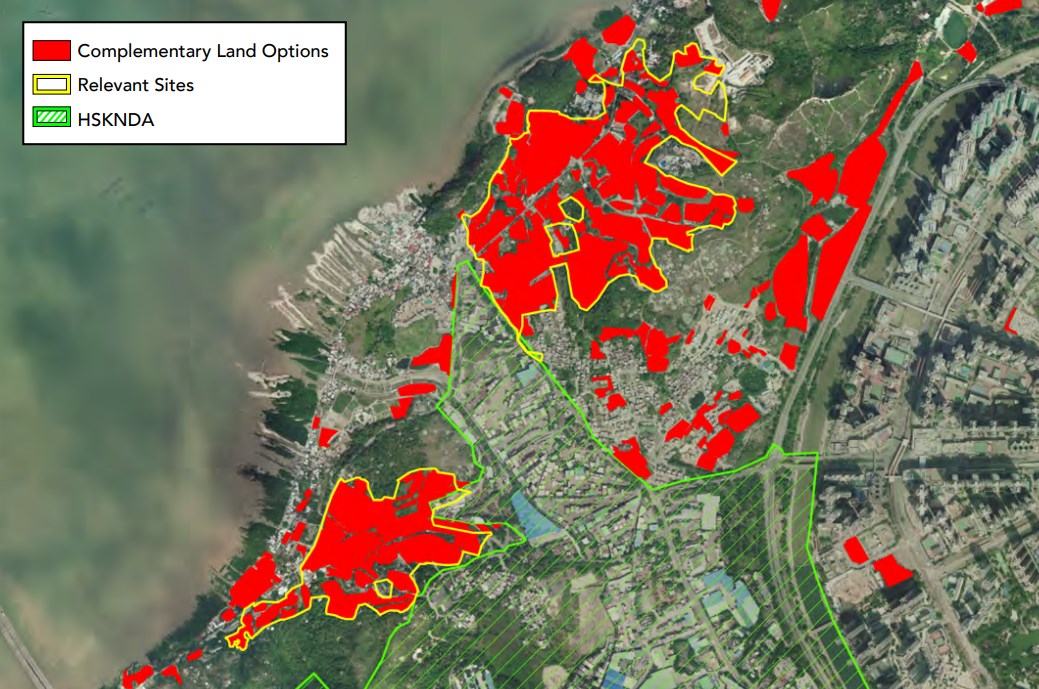The Hong Kong government should adopt a new planning strategy for housing land development in order to solve the city’s housing crisis, according to a report published by two research groups.
The Professional Commons, along with land research group Liber Research Community, published on Thursday a proposal on land development in the New Territories and shortlisted 14 sites for short to medium term development.

The report, titled “Rejuvenating the New Territories,” identified 1,965 hectares of “complementary land resources” in the New Territories, including brownfield sites, land hoarded by developers land, under-utilised government land, and small house land.
The 14 sites, amounting to 563 hectares, were located mainly in the north-west of the New Territories. Liber Research Community said that some of those sites were near to government development projects, meaning that the land could be included by expanding existing plans.
An example included a site at the north of Hung Shui Kiu new development area, where the group claimed that the government could find more than 41 hectares of extra land resources by extending the development area border by less than a kilometre.
The research group also made public an online database highlighting the land resources they found.
“By publicising a development plan, we hope that the public can see clearly that actually Hong Kong has other land resources, and a greater and better potential for better planning,” said Chan Kim-ching, said founder of Liber Research Community.
New approaches
The two groups also called for the government to rethink its planning strategy to reduce its reliance on developing new infrastructure. Instead, they said that development based around existing infrastructure, such as transport network, would help shorten the time needed.
The government should also consider more sustainable and diverse approaches to land development, including building low-medium density public housing in rural areas, as well as prioritising “suitable land types.”

The government has been criticised for prioritising offshore reclamation over less environmentally damaging ways of finding land for housing. Former chief executive Leung Chun-ying has also proposed developing land on the fringes of protected country parks.
Chief Executive Carrie Lam is pushing a massive reclamation plan called Lantau Tomorrow Vision, which aims to create a total of about 1,700 hectares through seabed reclamation east of Lantau island, as well as off Tuen Mun.
In addition to the potential environmental damage, critics estimate that the plan will cost the public up to HK$1 trillion, as opposed to the government estimate of HK$624 billion.
Albert Lai, convenor of the Professional Commons, said that a change in the government’s leader should not mean a complete restart in the administration’s land policy, referring to the chief executive election set for March next year.
“The last thing we want the new CE to do is to really think that he’s a new CE, because in Hong Kong, there’s no such thing as a new CE – every CE continues the party line, and the party is already here for ages,” said Lai.
“All these studies, and all these other policies, the ongoing policies – we don’t want the new CE to say: okay we start over again, another two years to do another land study and so on.”
Support HKFP | Policies & Ethics | Error/typo? | Contact Us | Newsletter | Transparency & Annual Report | Apps
Help safeguard press freedom & keep HKFP free for all readers by supporting our team

LATEST FROM HKFP
HKFP has an impartial stance, transparent funding, and balanced coverage guided by an Ethics Code and Corrections Policy.
Support press freedom & help us surpass 1,000 monthly Patrons: 100% independent, governed by an ethics code & not-for-profit.










